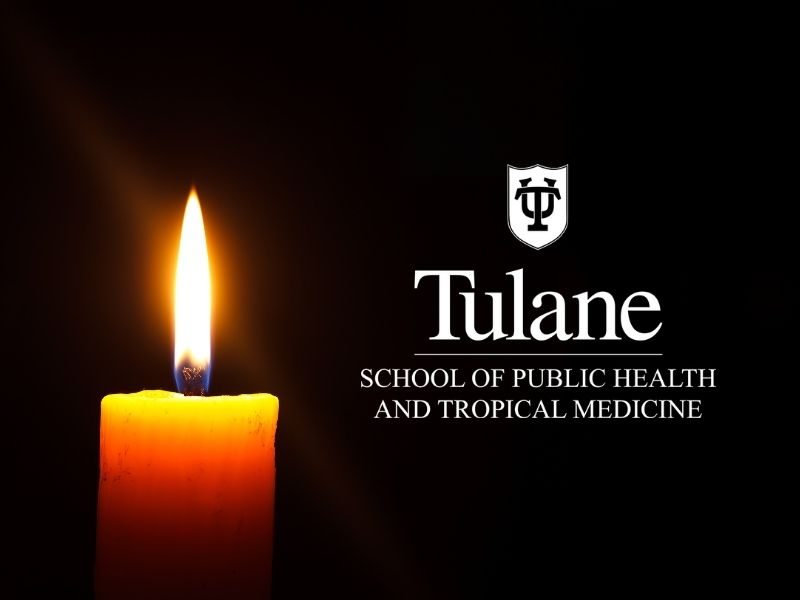Commemorating loss with hope

One year ago today, Louisiana recorded its first death due to COVID-19, Mr. Ives Green, a New Orleans resident of a facility serving people with developmental disabilities.
Mr. Green was a gifted runner and an award-winning Special Olympics athlete. He loved fishing, listening to music, and cheering for the New Orleans Saints.
We mourn Mr. Green’s life, and the lives of every New Orleanian, every Louisianian, every American, everyone who’s lost their life to this pandemic, along with everyone’s whose life has been touched by COVID-19, whether through losing a loved one or suffering the lingering effects of the disease.
By March 14, 2020, the novel coronavirus, as it was known then, had been in the U.S. for nearly two months. Louisiana had only recorded its first case five days earlier. Former President Trump had declared a public health emergency just the day before.
Since then, 769 New Orleanians have died from the virus. More than 28,000 have tested positive in this city alone, many hospitalized with severe illness.
Almost 10,000 people in Louisiana, enough to fill the Lakefront Arena, have died. Nationally, 50 times as many Americans, more than half a million, have perished.
By the end of 2020, one in every 1,000 Americans had died of COVID-19, and one in 17 had contracted the virus at some point over the course of the year. By the time deaths reach 660,000, which we’re on track to hit sometime in April, one in every 500 Americans will have died from COVID.
Mr. Green could not know the extent of his illness or the trauma the virus would bring about in the days, weeks, and months to follow his passing. After his death, his family called for COVID-19 to be taken seriously and for people to follow the guidance laid out by the government to help prevent the spread of COVID-19.
Over the course of this year, we have seen just how deadly COVID-19 is, and it’s our responsibility to learn from the experiences of the past year and avoid, as much as possible, the loss that the Green family suffered.
To be sure, hope is on the horizon. Vaccinations are being administered in every state, and President Biden has indicated that the U.S. will have an adequate supply to vaccinate all Americans by the end of May. More than 1 million doses have been administered in Louisiana.
We’ve made tremendous progress in a short amount of time, but new variants of the virus that causes COVID-19 are threatening to derail that progress.
Some Americans who are eligible to receive the vaccine are standing by, putting off getting the vaccine while they wait to see what happens. Every day they wait leaves space for more variants of SARS CoV2 to form. Although the three major vaccines in production appear to be useful against current variants, we don’t know how long that will be true. Sooner or later, there will be a variant the current vaccines cannot protect against. Waiting increases the chance of more people getting sick, of new variants forming, of more people dying.
Waiting to be vaccinated is not a luxury we can take.
While we have over 500,000 documented deaths from COVID-19, we have zero documented deaths from the vaccines available in the U.S.
Death is not the only concern we have as we begin to learn about the long-term impacts of COVID. As many as one-third who have been sick continue to struggle with significant health challenges. Even some who initially experienced just mild symptoms have gone on to experience symptoms that keep them from working, studying, and resuming normal behaviors.
We don’t know if these debilitating effects will be lifelong. There may be as many as a million “long-haulers,” lives that may be irreparably altered by COVID.
Vaccine hesitancy may be deadly. It also may keep us from herd immunity and getting back to normal.
We all want to dine in restaurants with friends. We want to hold festivals, attend football games, and celebrate Mardi Gras. We want to travel to the beach, to other states, and around the world.
We cannot get there until we stop the spread of COVID-19, until we prevent more deaths like Mr. Green’s. The vaccines are our path to stop that spread.
Be in that number. Get the vaccine.
